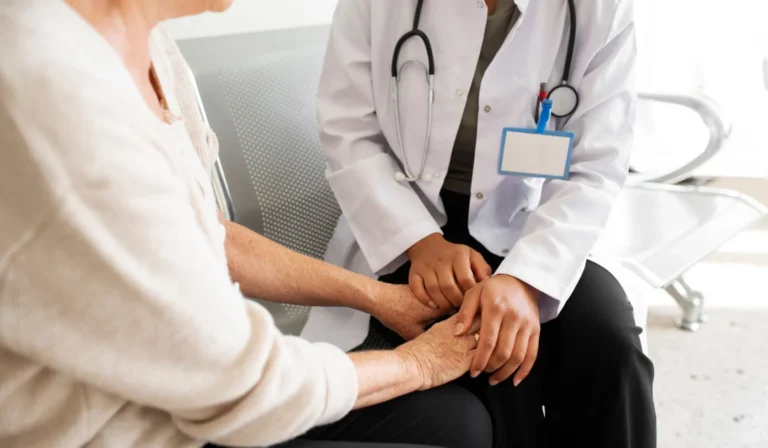A guide to navigating menopause, including symptoms, treatments, and lifestyle changes for a smooth transition.
Introduction
Menopause is a natural transition in a woman’s life, but it often brings unexpected symptoms and emotional challenges. Knowing what to expect and how to prepare can help you approach this phase with confidence and ease.
In this article, we’ll cover what menopause is, common symptoms, and practical ways to support your health before, during, and after menopause.
What is Menopause?
Menopause marks the end of a woman’s reproductive years. It is officially diagnosed after 12 consecutive months without a menstrual period, confirmed by FSH blood level of >40.. The average age of menopause in the United States is around 51, but it can happen anytime between ages 40 and 60.
Stages of Menopause
-
Perimenopause (transition phase)
-
Starts years before menopause, when hormone levels begin to fluctuate.
-
Symptoms like irregular periods and hot flashes may begin.
-
-
Menopause
-
The point when you haven’t had a period for 12 months, and FSH blood level of >40.
-
-
Postmenopause
-
The years after menopause, when symptoms may ease but health risks like osteoporosis, cardiovascular disease( heart attack, stroke, blood clots) and sexual or bladder dysfunction increase.
-
Common Symptoms of Menopause
Every woman’s experience is unique, but common symptoms include:
-
Hot flashes and night sweats
-
Irregular periods (during perimenopause)
-
Mood changes, irritability, or anxiety
-
Sleep disturbances
-
Vaginal dryness or discomfort during intercourse
-
Weight gain, especially around the abdomen
-
Decreased libido
-
Thinning hair or dry skin
These symptoms are caused by declining estrogen and progesterone levels. Some women have mild symptoms, while others find them disruptive to daily life.
How to Prepare for Menopause
While you can’t prevent menopause, you can take steps to reduce discomfort and protect your health long-term.
1. Prioritize a Balanced Diet
Eat foods that support hormonal health, such as:
-
Leafy greens, berries, and cruciferous vegetables (broccoli, cauliflower)
-
Healthy fats from avocados, nuts, and olive oil
-
High-quality proteins like fish, chicken, and legumes
-
Calcium and vitamin D-rich foods for bone health
💡 Tip: Limit processed foods and excess sugar to reduce inflammation and stabilize mood and energy.
2. Exercise Regularly
Aim for at least 30 minutes of movement daily:
✅ Strength training to maintain bone density and muscle mass
✅ Walking, yoga, or low-impact cardio for heart health and stress relief
Regular exercise helps manage weight, improves mood, and supports hormonal balance.
3. Support Emotional Well-Being
Hormonal changes can affect your mental health. Try:
-
Mindfulness practices or meditation
-
Journaling to process emotions
-
Talking with friends, family, or a therapist
Remember, mood swings are common. Seeking support is a sign of strength.
4. Sleep Hygiene
Hormonal changes can disturb sleep. For better rest:
-
Maintain a consistent sleep schedule
-
Keep your room cool to reduce night sweats
-
Avoid caffeine and screens before bedtime
Quality sleep supports hormone regulation, mood stability, and energy.
5. Consider Hormone Therapy
For (severe) menopausal signs and symptoms, bioidentical hormone therapy ( or traditional hormone replacement therapy) (HRT) may be options. These treatments:
-
Alleviate hot flashes and night sweats
-
Improve sleep and mood and cognitive sharpness
-
Protect bone health
- Help bladder and sexual function
Discuss risks and benefits with your gynecologist to make an informed decision.
6. Schedule Regular Health Screenings
After menopause, your risk for certain conditions increases, including:
-
Osteoporosis (due to lower estrogen)
-
Heart disease (changes in cholesterol levels)
Regular wellness visits, bone density scans, and heart health assessments ensure proactive care.
Final Thoughts
Menopause is a significant life change, but with the right preparation, you can navigate it confidently. By adopting healthy habits, supporting your mental wellness, and seeking guidance when needed, you’ll continue to feel strong, vibrant, and empowered.
At Austin Springs Women’s Health, we specialize in helping women through every stage of life, including menopause. If you’re experiencing symptoms or want to explore treatment options, book a consultation today. Our team is here to support your journey with compassion and expertise.
“Menopause is not an ending, but a powerful new beginning. Prioritize your health so you can thrive in this next chapter.”




